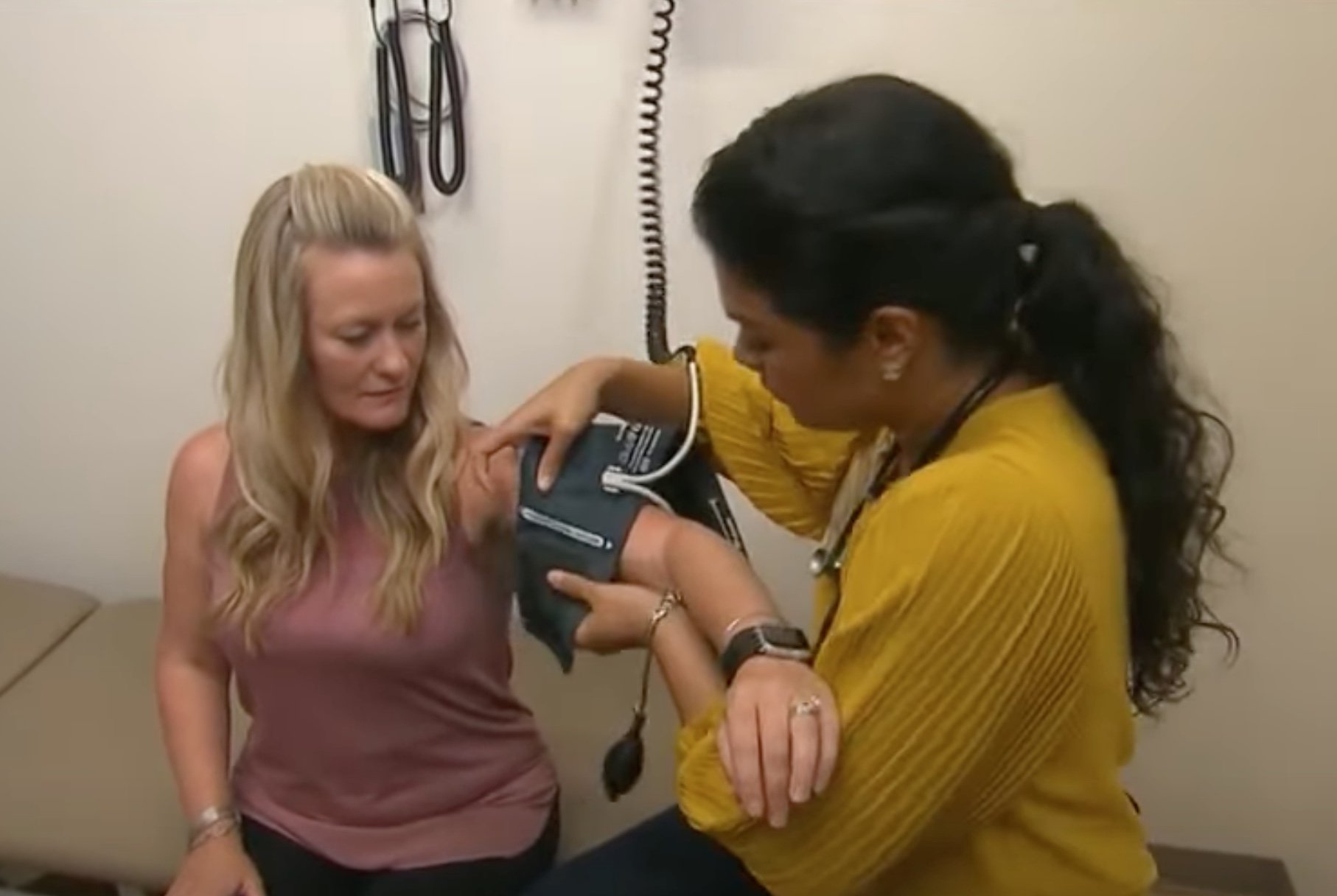New Procedure Is Game-Changing For Patients With High Blood Pressure, Doctors Say

A new FDA-approved minimally invasive procedure targets nerves near the kidneys to control high blood pressure in patients with treatment-resistant hypertension.
The procedure uses devices to ablate overactive sympathetic nerves, potentially reducing blood pressure for at least five years.
The risks include potential artery damage, but studies have shown positive results in lowering blood pressure. (Trending: Trans Athlete Breaks College Record After Joining Women’s Team)
Patients who underwent the procedure reported reduced reliance on medications and improved physical activity.
However, further research is needed to determine its appropriate role in clinical practice.
People with treatment-resistant hypertension could benefit from a new procedure that the FDA recently approved.
The minimally invasive procedure targets nerves near the kidneys to help control high blood pressure when medications fail to do so.
Dr. Samin Sharma, an interventional cardiologist and director of the Mount Sinai Cardiovascular Clinical Institute at Mount Sinai Fuster Heart Hospital in New York City, performed the new procedure on a patient this month.
“When the device came, we said, ‘We are going to try it on you,’” said Sharma.
“He said yes and was very happy,” added Sharma.
“The treatment uses a device that ablates the overstimulated sympathetic nerves near the kidneys”, Sharma said.
Medtronic’s Symplicity Spyral Renal Denervation system and Recor Medical’s Paradise Ultrasound Renal Denervation system have both received FDA approval.
According to the FDA’s approval statement, the device is intended “to reduce blood pressure as an adjunctive treatment in patients with hypertension in whom lifestyle modifications and antihypertensive medications do not adequately control blood pressure.”
“The procedure is intended for individuals who do not show blockage of the kidney arteries,” Sharma noted.
“You kind of destroy the nerve endings,” he continued.
“There is most likely no negative impact on the kidneys,” Sharma explained.
“Damage can occur in about one in 500 cases,” Sharma admitted.
“We don’t expect this to happen, but that is a [potential] complication,” said Sharma.
Dr. Manesh R. Patel, M.D., chief of cardiology and co-director of the Duke Heart Center said, “In high-quality randomized studies, the renal denervation procedure has been shown to improve blood pressure control … in patients with difficult-to-control blood pressure and those with high blood pressure who are on one or two medications.”
“Hypertension is the most frequent modifiable risk factor for heart disease, and blood pressure control in our country is not where it needs to be,” said the doctor.
“Therefore, having a procedure to support control, on top of medications, is an important step forward,” he continued.
Adding, “The studies done to date have shown the renal denervation procedure has been well-tolerated and there has been a low risk of causing any damage.”
Dr. Steven Potter, M.D., an experienced kidney and pancreas transplant surgeon at Medstar Georgetown Transplant Institute said, “The global costs of hypertension are enormous, and innovative treatment options could prove to hold great value.”
“At this point, renal denervation continues to be an experimental therapy that has shown some promise as a proof of concept,” continued the surgeon.
Potter also noted, “the results of studies have been conflicting, with some showing significant benefit and others failing to do so.”
Suggesting more experimentation should be completed “before its appropriate role in clinical practice is determined.”
Most Popular:
Judge Announces Historic Ruling In Jeffrey Epstein Case
Assault Weapons Ban Set To Take Effect, Here’s What To Know
Prominent LGBTQ Activist Arrested Over Disturbing Charges
The post New Procedure Is Game-Changing For Patients With High Blood Pressure, Doctors Say appeared first on Analyzing America.
Andrew Sanders Analyzing America https://www.analyzingamerica.org/
Comments
Post a Comment